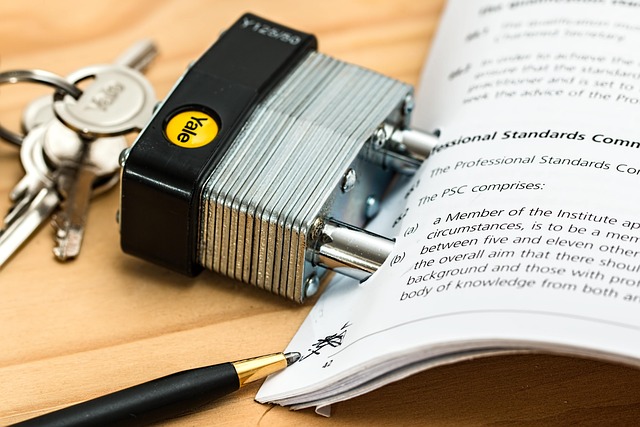Is Copy Trading Legal? A Comprehensive Guide to Legality, Regulations, and Compliance
Author: Jameson Richman Expert
Published On: 2025-10-06
Prepared by Jameson Richman and our team of experts with over a decade of experience in cryptocurrency and digital asset analysis. Learn more about us.
Copy trading has revolutionized the landscape of financial investing by enabling traders—both novices and seasoned professionals—to replicate trading strategies automatically. This innovative approach democratizes access to sophisticated financial techniques, promising enhanced portfolio diversification, potential higher returns, and reduced decision fatigue. Despite its rapid growth and appeal, a critical concern persists: Is copy trading legal in your jurisdiction? Understanding the complex web of international legal standards, regional regulations, and compliance requirements is vital to avoid legal pitfalls, regulatory sanctions, and financial losses. This authoritative guide offers an in-depth analysis of the global regulatory environment surrounding copy trading, explores regional differences, examines cryptocurrency-specific rules, and provides best practices to ensure lawful and secure trading practices.

Global Regulatory Landscape for Copy Trading
The legality and regulatory oversight of copy trading vary significantly across different countries and regions, influenced by each jurisdiction’s financial market maturity, consumer protection focus, and technological stance. Countries with well-established financial systems have crafted comprehensive frameworks to regulate copy trading, emphasizing investor protection, transparency, and anti-fraud measures. In contrast, regions with less developed regulatory infrastructure or ambiguous legal environments pose higher risks for traders, including exposure to scams, unlicensed platforms, and systemic vulnerabilities. Recognizing these regional nuances is essential for traders to ensure compliance, mitigate risk, and operate within the law.
European Union
In the European Union, copy trading platforms are governed by a rigorous regulatory framework overseen by the European Securities and Markets Authority (ESMA). Regulations such as the Markets in Financial Instruments Directive II (MiFID II) and the Markets in Financial Instruments Regulation (MiFIR) set strict criteria for licensing, operational standards, and transparency. These laws mandate that platforms providing copy trading services must obtain authorization from national competent authorities, clearly disclose risks, and ensure investor protection through robust conduct rules. The EU's harmonized regulatory approach aims to foster market integrity, safeguard consumers, and prevent fraudulent activities. Many EU-based platforms operate under these clear standards, ensuring high levels of legal certainty and consumer confidence.
United States
The US regulatory environment is particularly stringent, primarily overseen by the Securities and Exchange Commission (SEC) and the Commodity Futures Trading Commission (CFTC). Platforms engaging in securities, options, futures, or derivatives trading must comply with registration, disclosure, and operational requirements. This includes registering as broker-dealers or derivatives trading entities, implementing AML (Anti-Money Laundering) and KYC (Know Your Customer) protocols, and adhering to strict consumer protection standards. Unregistered or unregulated platforms are considered illegal, with enforcement actions including hefty fines, civil penalties, and shutdown orders. US traders must verify that their chosen copy trading platforms are compliant with all applicable laws to avoid severe legal repercussions and financial penalties.
Asia and Other Regions
Asia presents a highly diverse regulatory scenario. Countries like Japan, Singapore, Hong Kong, and Australia have developed comprehensive legal frameworks for digital asset and copy trading platform regulation. For instance, Japan’s Financial Services Agency (FSA) enforces licensing standards, AML/KYC compliance, and operational standards. Singapore’s Monetary Authority of Singapore (MAS) mandates licensing and emphasizes transparency and consumer safeguards. Conversely, nations such as India, Indonesia, and the Middle East exhibit partial bans, restrictive policies, or ambiguous legal environments regarding cryptocurrencies and digital trading services. In some jurisdictions, copy trading involving digital assets may be outright illegal or heavily restricted, requiring traders to exercise diligent legal research before participation.
Cryptocurrency and Digital Asset Copy Trading Regulations
Cryptocurrency-based copy trading introduces additional layers of legal complexity due to the varying status of digital assets worldwide. Different countries classify cryptocurrencies differently—some as legal commodities, others as securities or unregulated assets. This classification directly impacts the legality of crypto copy trading platforms and activities.
- Countries with Clear Regulations: Nations like Japan, Singapore, Switzerland, and the UK have established explicit legal frameworks permitting crypto copy trading, contingent upon compliance with AML, KYC, licensing, and consumer protection laws. These regulations aim to promote innovation while safeguarding investors and maintaining financial stability.
- Countries with Restrictions or Bans: Countries such as China, Algeria, Bangladesh, and some Middle Eastern nations have implemented outright bans or severe restrictions on cryptocurrencies, rendering crypto copy trading illegal. Violations can lead to criminal charges, asset seizures, and substantial fines. Traders operating in these jurisdictions should exercise extreme caution and seek legal advice.
Engaging with non-compliant crypto platforms can result in significant legal risks, including asset confiscation, civil or criminal penalties, and reputational damage. Due diligence to verify the legal status of digital assets and platform licensing within your jurisdiction is essential for lawful operation.
Platform Legitimacy and Regulatory Compliance
The legitimacy and security of copy trading platforms are closely tied to their adherence to legal and regulatory standards. Reputable platforms such as Binance, MEXC, BitGet, and Bybit operate under licensing regimes, comply with AML/KYC protocols, and are registered with relevant authorities where applicable. These compliance measures demonstrate platform legitimacy, mitigate legal risks, and boost user trust.
To verify a platform’s legitimacy, consult official regulatory directories or licensing authorities. Prioritize platforms with proper licensing, transparent operations, and proven regulatory compliance to ensure legal security and safeguard your assets.

Transparency, Disclosure, and Consumer Protection
Regulatory authorities worldwide emphasize transparency in copy trading operations. Reputable platforms provide detailed trader profiles, including historical performance, risk metrics, and success rates. Clear terms of service, transparent fee disclosures, and prominent risk warnings are essential for legal compliance and consumer protection. Lack of transparency or unregulated platforms increase vulnerability to scams, misrepresentation, and unethical practices. Enforcing transparency standards not only complies with legal norms but also fosters trust, accountability, and an ethical trading environment that benefits both investors and the broader financial ecosystem.
Due Diligence and Legal Precautions for Investors
Prior to engaging in copy trading, investors should undertake rigorous due diligence to ensure compliance and mitigate risks:
- Verify the platform’s licensing and registration status through official regulatory bodies.
- Understand the legal classification of assets involved—whether they are securities, derivatives, or commodities—and ensure compliance with local laws.
- Thoroughly review user agreements, terms of service, and risk disclosures, paying attention to liability clauses and dispute resolution mechanisms.
- Consult legal or financial professionals with expertise in securities law, digital assets regulation, and international trading compliance—especially for high-stakes or complex transactions.
Remaining vigilant about evolving regulations and legal standards helps prevent inadvertent violations, potential sanctions, or asset freezes. Staying well-informed ensures your copy trading activities remain within lawful boundaries, protecting your investments and reputation.
Summary: Ensuring Legal and Regulatory Compliance in Copy Trading
In conclusion, copy trading can be a legal, secure, and profitable activity when conducted via properly licensed and regulated platforms that align with local legislation. The regulatory environment varies markedly depending on your jurisdiction, the nature of assets involved, and the platform’s compliance adherence. To minimize legal risks and maximize benefits:
- Prioritize platforms with valid licenses, regulatory approval, and transparent operations.
- Ensure compliance with local tax obligations, reporting requirements, and registration mandates.
- Stay informed about ongoing regulatory updates affecting digital assets and copy trading activities.
Informed decision-making, diligent platform vetting, and strict adherence to legal standards are essential for responsible participation in copy trading. Emphasizing regulation, transparency, and security empowers traders to navigate the complex global landscape confidently, mitigate risks, and fully harness the potential of this innovative trading method.